'I was shot at in a drive-by, robbed of £130,000 and targeted by Romanian gangsters'
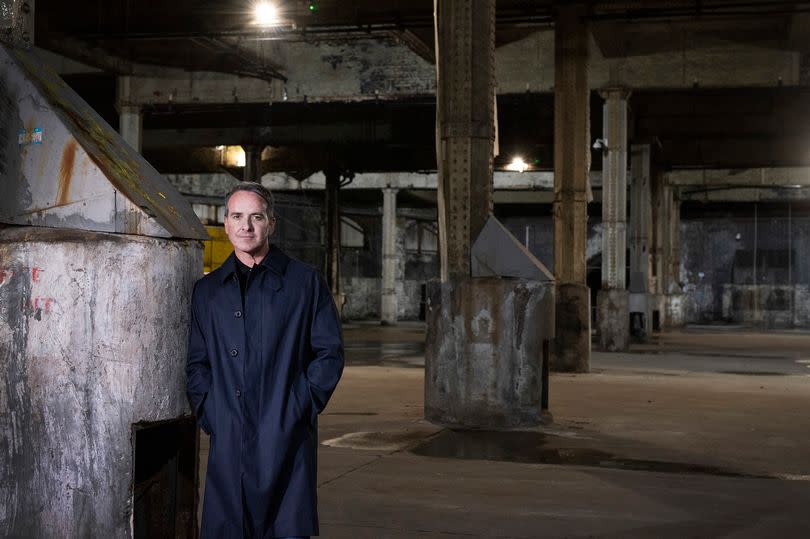
As far back as he can remember, Sacha Lord ‘never wanted to be a gangster’. Before the Parklife boss and Manchester night time tsar was advising Andy Burnham or calling for lower VAT for the city’s restaurants and bars, he was a self-confessed ‘nerdy kid’ from Altrincham who went to Manchester Grammar School.
For Sacha, gangsters were just people in films like Goodfellas. But in the 1990s, in the early days of his career as a promoter for student club nights, he would come face-to-face with some of Manchester’s most notorious characters. His memoir, Tales from the Dancefloor, released earlier this week, jumps straight back to those days.
He’s the man behind some of the biggest music events in the UK and, in his first book, co-authored by Luke Bainbridge, he recalls some of the most defining and hair-raising moments of his career. Whilst the stories behind how The Warehouse Project and Parklife came to life raise a smile, it is the tales from his early promoter years at legendary Manchester haunts including The Hacienda, Home, Paradise Factory and Sankeys, that reveal most about his journey to becoming one of the most prominent figures in Manchester’s nightlife scene.
READ MORE: 'What a night!': Take That join Lulu on stage at Manchester gig for surprise performance
“I’ve been shot at in a drive-by shooting, bundled into a car by gangsters and had death threats, which is not very acid house,” writes Lord, reflecting on 30 years in the business. “I’ve been sued, broke, I’ve had to deal with an army of rats who were high on cocaine, had £130,000 stolen from me during an armed robbery, and been targeted by a Romanian organised crime gang.”
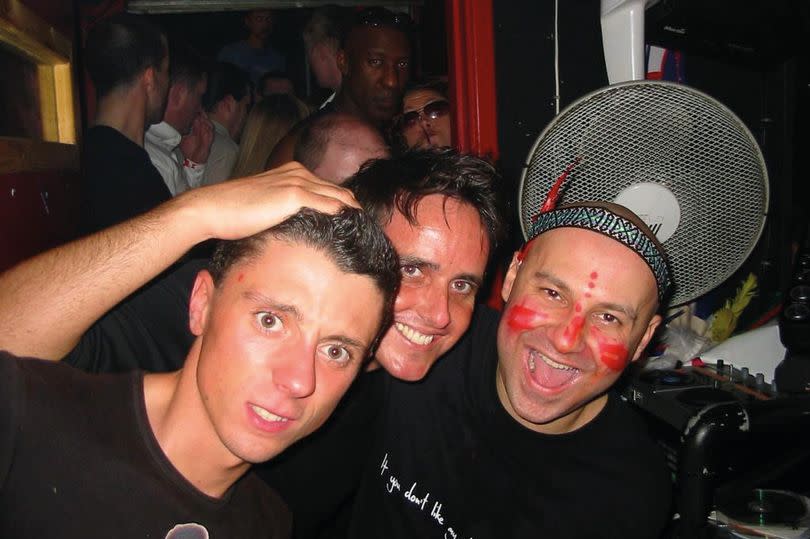
Even before he started promoting student nights though, he had come across The Quality Street Gang, who he describes as being on the ‘periphery of his dad’s social circle’. Under his mother’s instructions he would head into town after school on Friday and go and collect his father from a basement bar called Drummonds, where he would find him “surrounded by women and dodgy characters like the QSG”.
“They came across as perfectly nice businessmen, which I know sounds weird to say really, but just well-dressed men in suits and ties,” he tells me from behind his desk in his city centre office. Lord would have been around 15 or 16 at this time so said it wasn’t intimidating, but admits he may have been a bit oblivious to the wider context.
'The gangster of gangsters'
Fast forward ten years later and it was much harder to ignore the power wielded by Manchester’s gangs, many of whom were running the doors at the city’s biggest nightclubs. Describing it as the 'wild west', he looks back now with shock at how normalised it was to hear of knives being pulled on DJs at the Hacienda and shoot-outs between rival gangs.
Though the worst of the violence at The Hacienda - where he held his first student night - was before his time, two further events - a freshers ball and student Christmas party would bring ‘the gangster of gangsters’ into his orbit.
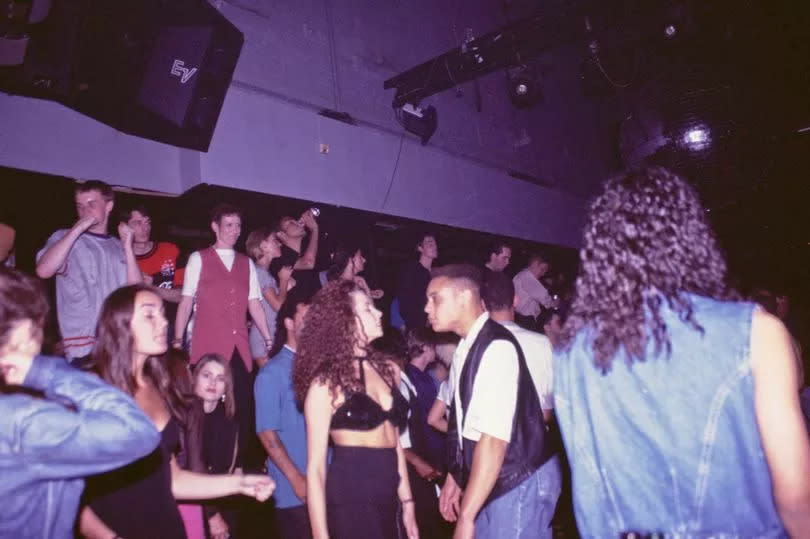
“Damien Noonan was probably one of the most intimidating people I’ve met in my life,” he admits. “Not many people could persuade my best friend to hand over his father's Christmas outfit and be left in boxers, but Damien did, referring to an instance when Damien demanded Sacha’s friend J-Boy hand over the festive ensemble so he could wear it for his kids on Christmas Day.
“He was one of the most fearsome people, you couldn’t disagree with anything he said. I remember there was a night where one of his people was running around talking about someone coming down, and they had the Champagne out, it was like they were preparing for a king - it ended up being Paul Massey.”
'I was very lucky to survive'
Later, when promoting events at Home nightclub based on Ducie Street, Sacha was caught up in the crossfire of a drive-by shooting. Lord took his wife Demi to see the building not long ago, the marks still visible on the exterior of Ducie House.
“I was very lucky to survive that, I absolutely s*** myself. When all the bouncers ran indoors and I was just left waiting outside gripping onto my lime green Perspex clipboard.”
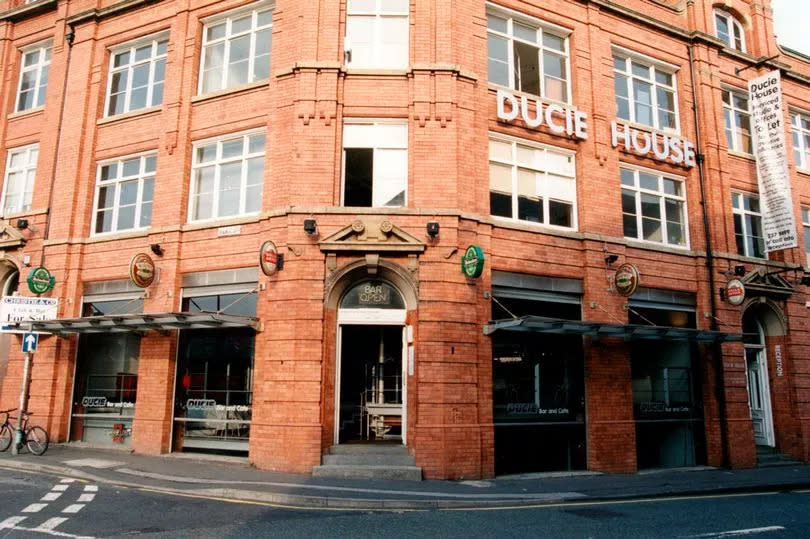
Later, when I was doing Sankeys, from 2000 to 2006, I’m not exaggerating when I say taxis would drop you off at the top of the road, there would be kids wearing balaclavas, cycling around on BMXs, syringes on the floor, no street lighting. Back then you wouldn’t walk around. It’s chalk and cheese to how it is now around Ancoats.”
'My dad lost everything as a gambler, womaniser and alcoholic - I wanted to be the opposite'
Born in Altrincham in 1972, Lord’s family had a long history of working in textiles, and his grandad Edward’s company operated out of a mill in Cheetham Hill, which is now home to the nightclub Hidden. Passed down to Sacha’s father John in the mid-1960s, the business did not continue to thrive under his stewardship. “My dad had the family business handed to him, he never had to earn it, and he was a bit useless at managing it - squandering the money on drink, gambling and women.”
His parents split up when he was a teenager, and, despite attending Manchester Grammar, Sacha found himself at the bottom of the class, leaving school with few qualifications - two U grades and an E at A-level. As his school friends went off to prestigious universities, Sacha found himself working for his dad, selling home-brew kits called beer bags door to door.

“It was a horrible 18 months or so. This was 1990. Madchester and the acid house explosion was happening on my doorstep, but I was trapped in this s***** situation traipsing round factories being treated like dirt by my dad.
“I wanted to prove myself after being bottom of the class at school, but also seeing my dad lose everything as a womaniser, gambler, alcoholic, I wanted to be the complete opposite of that. I was constantly told I was thick at school, so this book proves otherwise," he says.
“I think people look at me and think he’s done alright for himself, you know with Parklife and The Warehouse Project, but I would like people to read the book and realise that I have done all this, but against all odds. I wasn’t handed it, I wasn’t born with a silver spoon up my backside. I’ve done everything and was flyposting at 3am, I put the graft in, it wasn’t an overnight thing."
'I wanted to make sure Sankeys was a success - not just an excuse to party'
A few moments stand out for Sacha. Amongst them, a night he put on at the Granada TV Studios Tour, an event he admits he was ‘making up’ as he went along, and resulted in two students having relations in Jack and Vera’s pigeon shed on the Corrie cobbles. But it was this moment, and the time he and Former business partner Dave Vincent headed down to Manchester Magistrates’ Court to pick up their licence to revive the club Sankeys that he describes as lightbulb moments.
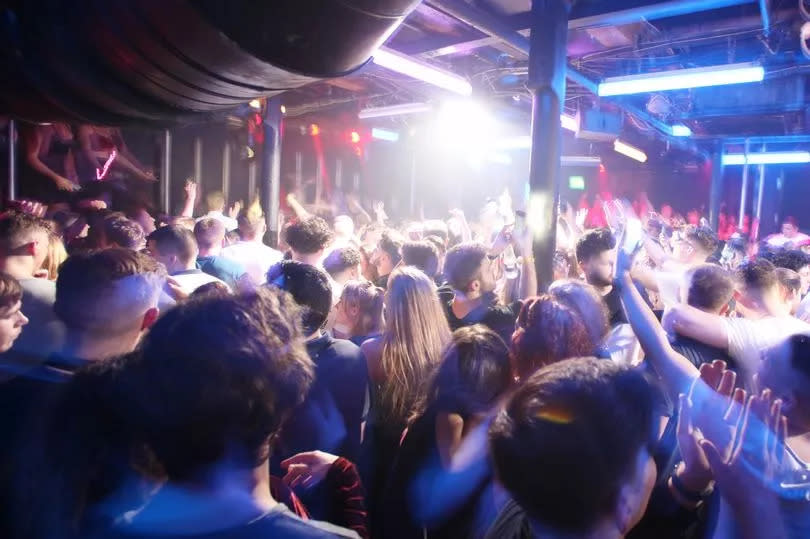
“I didn’t mind people partying, I mean it’s a nightclub at the end of the day, but I also wanted to make sure Sankeys was a successful business as well, not just an excuse to party,” he writes in the book.
This commercial mindedness would come to define the second part of Sacha’s career at a time when the lawlessness of the nocturnal underground was giving way to a new Manchester and paving the way for the superclubs that have come to define the city’s nightlife scene.
It was Sacha who held the first warehouse party in the UK since the Criminal Justice Bill was passed in 1994, and it was this event that would sow the seeds of what would become The Warehouse Project. After reading a story in the Manchester Evening News about Boddington’s Brewery closing down, Sacha and WHP co-founder Sam Kandel seized the opportunity, and in 2006 the Mancunian landmark on the outskirts of the city centre played host to its opening season.
Though they welcomed major acts including Public Enemy, Soulwax, Doves and John Digweed, it was, as Sacha calls it, a ‘baptism of fire’ and ‘hanging on by a thread’. It worked though, and after a year, it moved into a car park under Store Street by Piccadilly that happened to be the biggest air raid shelter in Manchester city centre during the Second World War.
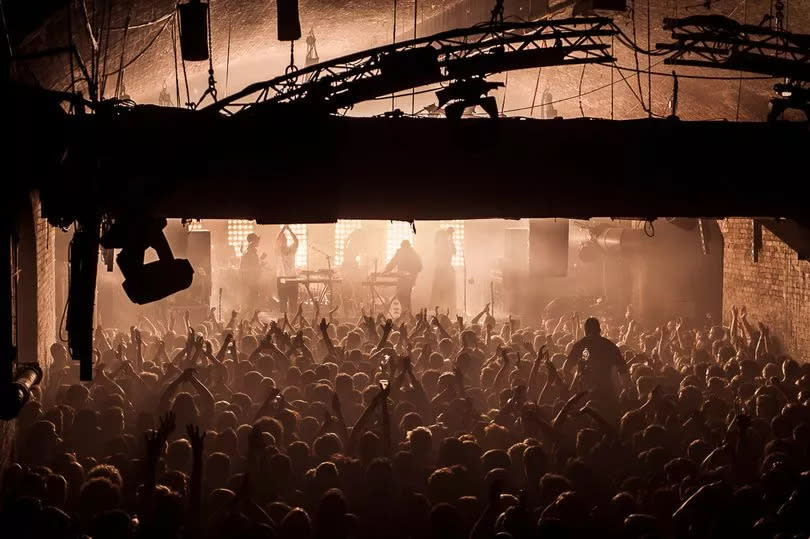
It moved between Victoria Warehouse and back to Store Street again, before finally planting its flag at Depot Mayfield, a cavernous venue it has called home since 2019. Along with the establishment of Parklife Festival in 2010, an event that started life as a student festival called Mad Ferret and has gone on to become the largest metropolitan festival in the UK, Sacha’s career has certainly been on an upwards trajectory - but he isn’t without his detractors and controversy.
'You can’t describe the feeling of when someone goes to your events and doesn’t go home to their mum and dad'
The Warehouse Project hit headlines in 2013 when Nick Bonnie, 30, from Stroud collapsed and died at the venue and later died at Manchester Royal Infirmary after taking ecstasy and cocaine. In September 2021, James Diss, a 20-year-old student, died after taking MDMA and Ketamine at the Warehouse Project.
"The first thing to remember is to forget how I feel and focus on the family and friends,” Lord says. “It doesn’t just impact me, it impacts the whole team. When Nick Bonnie died at Victoria Warehouse, we nearly stopped the Warehouse Project. You can’t describe the feeling of when someone goes to your events and doesn’t go home to their mum and dad. I wouldn’t wish that feeling on anyone.
"In 2013 I wasn’t as well known but we got all the DJs to support, and we thought that it wouldn’t stop people taking drugs, we could educate people. When Suella Braverman kyboshed back-of-house drug testing 48 hours before doors at Parklife last year, I could use my profile and it did go national. I am very confident that through James Cleverly we will have it back."
Manchester’s Night Time Advisor has also come under heat for the exclusivity clauses at his events, a contractual obligation that means artists cannot appear at other venues a number of weeks or months before. “When you put your head above the parapet you do have to expect a bit of nonsense,” he says, speaking more widely about the attention his profile has attracted.
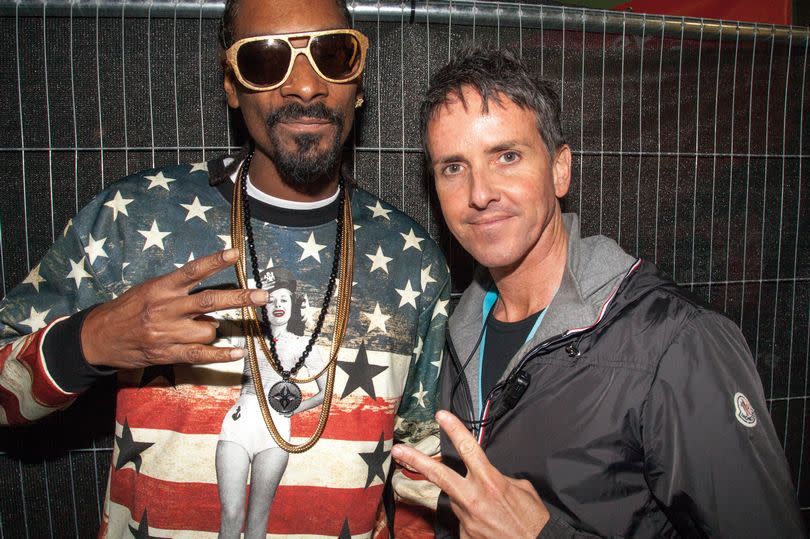
“It’s a standard in the music industry, so if you’re going to spend a lot of money at Fatboy Slim, you don’t want him playing another venue the week before, you might say ‘if we book him then we don’t want them to play so many weeks before or after’, or within a certain period."
Others claim superclubs like The Warehouse Project have overly commercialised Manchester’s nightlife sector. “We try to keep it as underground as possible, so yes we will have more commercial, accessible nights, but then we’ll have underground, like the XXL nights that you won’t have elsewhere. We cater for everyone, it’s not 'here’s 28 events, come to all of them'.
"At the same time Archive at WHP is about nurturing new talent, same as Parklife too, and we try and make it as much about Greater Manchester talent as much as we can."
'Co-op Live will have a massive effect...but we must do all we can to protect grassroots venues'

Comparing it to the start of the 1990s and that ‘special moment’ around the Hacienda, he thinks we’re about to have another resurgence too. “I think we’re really underestimating what Co-op Live will do, 23,500 people several times a week, will have a massive effect
“I think nationally there’s a shift though, so those carpeted nightclubs, people are not going to them, they’ve not adapted. But when you think about Hidden, White Hotel, Loft, Progress Centre and The Warehouse Project, we’re bouncing.
“But overall, grassroots venues are far more important than the bigger venues, because it’s the pipeline, so if you cut these up, you’re not going to have the AO Arenas, Co-op Lives and Parklifes of the world, all those things will stop because no new talent will come through. We have to do everything we can to protect them.”
Sacha may never have wanted to be a gangster but what about a politician? Appointed by Andy Burnham as Greater Manchester’s Night Time Economy Advisor in 2018, Lord has become vocal on a number of issues, most recently lowering VAT for the UK’s struggling hospitality industry, and the release of his book has some commentators asking whether this is another step in that direction.
“The amount of people who say ‘you’re going to take Andy’s job’, I’m really not. It’s not for me,” he smiles. “I think I can do more damage by screaming from outside.”
'If I wasn't born in Manchester in 1972...'
On what his main driving forces were to get him to this point, Lord says he doesn’t like the word ambition and ‘hates’ the word entrepreneurialism, but to some degree these traits have stood him in good stead, especially after leaving school with few qualifications.
“This was like the last roll of the dice, I was going to try and make something of myself by putting parties on. I’d come from earning £20 a day in a clothes shop, to a couple hundred pounds a night in a club. The first time I practically broke even was 4 July 1994 and then after that I’d do weekly student nights, and for the first three months there I made money like I had never imagined.”
“There’s also been two massive pieces of luck on my side, being born in Manchester and the year I was born, so getting to be a part of Madchester. If I wasn’t born in Manchester in 1972, all this wouldn’t have happened.”

 Yahoo News
Yahoo News 
